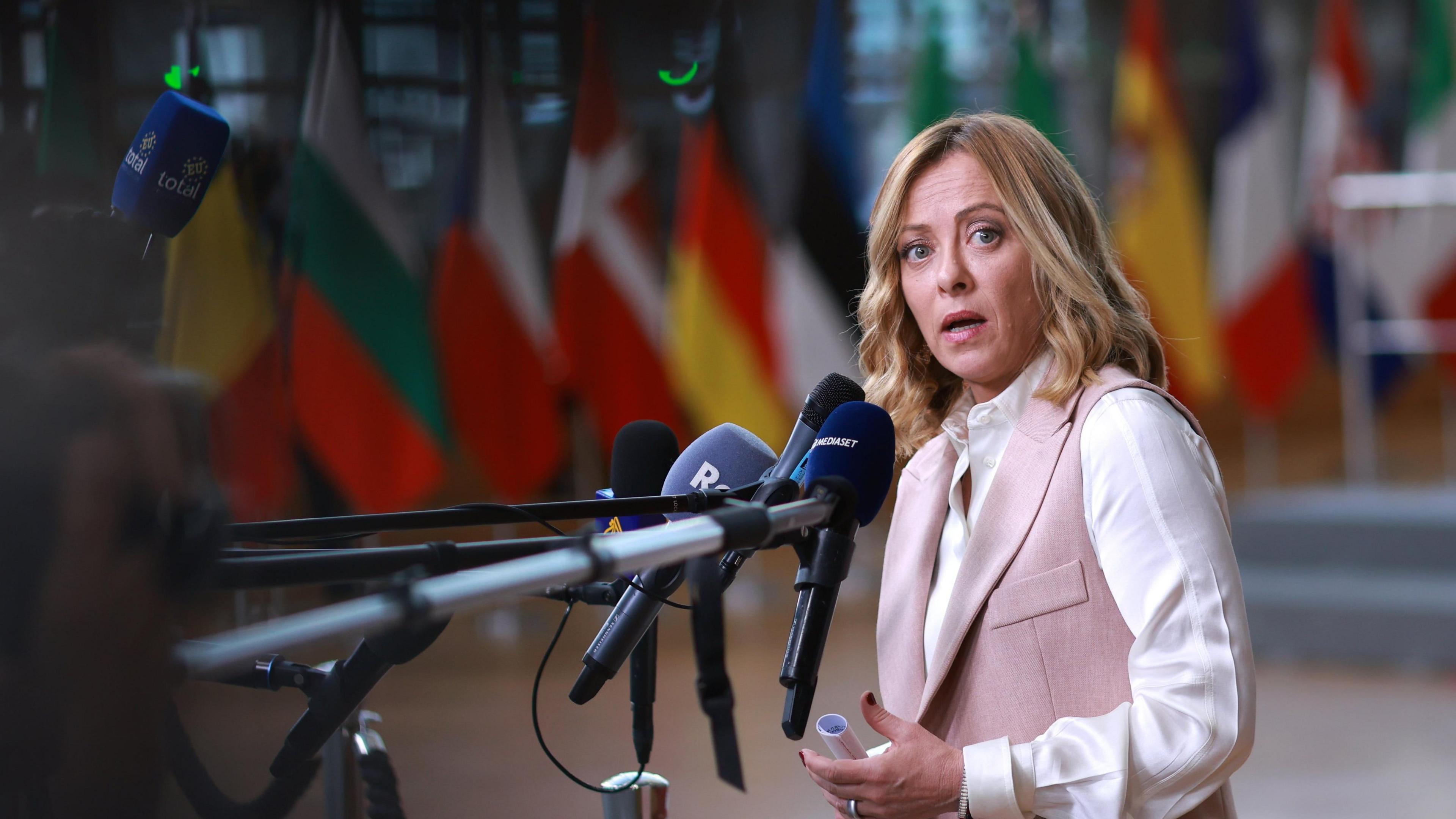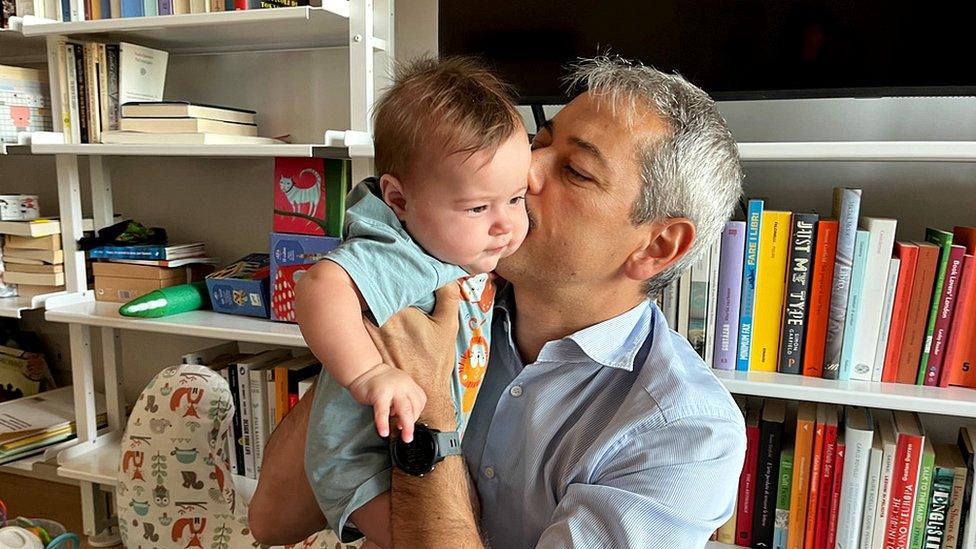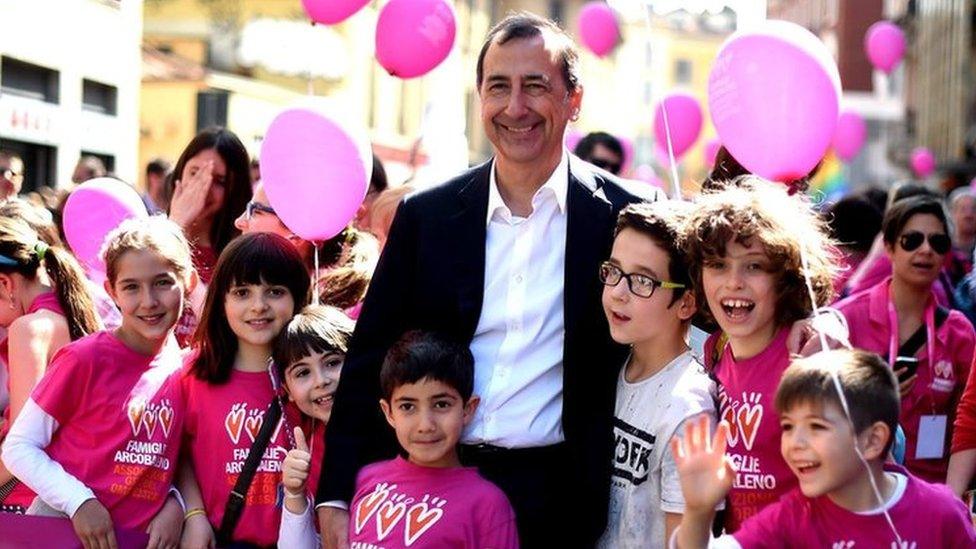Italy bans couples from travelling abroad for surrogacy

The move is part of the socially conservative agenda of Italy's Prime Minister Giorgia Meloni
- Published
Italy has made it illegal for its citizens to go abroad to have a baby through surrogacy.
The move extends a ban on the practice inside the country to also include those who seek it out in places where it is legal, like the US or Canada. Those who break the law could face up to two years in prison and fines of up to €1m (£835,710).
The law, proposed by the Italy's far-right governing party, is seen by critics to target LGBT couples - who are not allowed to adopt or use IVF in the country.
Surrogacy is when a woman carries a pregnancy for another couple or individual, usually due to fertility issues or because they are men in a same-sex relationship.
The law passed by 84 votes to 58 in Italy's senate on Wednesday.
In a protest ahead of the vote, the law's opponents said it made it harder for people to become parents - despite the country's declining birth rate.
"If someone has a baby they should be given a medal”, LGBT activist Franco Grillini told the Reuters news agency at the demonstration.
“Here instead you are sent to jail... if you don't have children in the traditional way.
"This is a monstrous law. No country in the world has such a thing."
The move is part of the socially conservative agenda of Giorgia Meloni - Italy's first female prime minister and leader of the Brothers of Italy party.
She has described herself as a Christian mother and believes children should only be raised by a man and a woman.
Meloni has previously spoken out against surrogacy involving LGBT couples, and anti-LGBT rhetoric was a key feature of her election campaign.
In a speech in 2022, she said “yes to the natural family, no to the LGBT lobby”.
In 2023, her government instructed Milan’s city council to stop registering the children of same-sex parents.
Meloni has described surrogacy as "a symbol of an abominable society that confuses desire with rights and replaces God with money".
Her deputy, Matteo Salvini, has also called the practice an "aberration" that treats women like an "ATM".
The MP that drafted Wednesday's ban previously denied that it was designed to harm LGBT people: "Most people who use surrogacy are heterosexual.”
It would “protect women and their dignity”, said Carolina Varchi.
Experts told the BBC that 90% of the couples who use surrogacy in Italy are straight, and many of them hide the fact that they have gone abroad to have a baby.
But same-sex families returning to Italy with a child cannot hide in the same way.
LGBT couples previously told the BBC of their fears surrounding the law.
Surrogacy laws around the world
Italy, Spain, France and Germany are among the European countries which outlaw all forms of surrogacy.
In the UK, it is illegal to pay for surrogacy beyond the surrogate's reasonable expenses. The surrogate will be registered on the birth certificate until parenthood is transferred via a parental order.
In Ireland, the Netherlands, Belgium and the Czech Republic, it's not possible to get a court to enforce a surrogacy agreement. This is the same in the UK, where a court will decide what is in the best interest of the child if there is a disagreement.
Greece accepts foreign couples and provides legal protection to the intended parents - the surrogate has no legal rights over the child - however Greece insists there should be a woman in the relationship (thus excluding gay couples or single men).
The US and Canada allow surrogacy for same-sex couples, and recognise them as the legal parents from birth.
- Published23 September 2023

- Published18 March 2023

- Published21 October 2022
